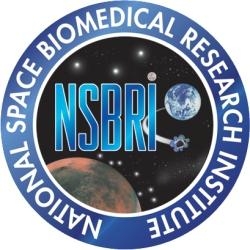Will Support Two Years Of Biomedical Space Research By Each Recipient
Five young scientists have received First Award Fellowships from the National Space Biomedical Research Institute (NSBRI). Through this two-year program, they will conduct research with the eventual aim of protecting astronaut health during long-duration spaceflights.

In addition to receiving mentorship from a faculty member at their home institution, the Fellows will become members of one of NSBRI's seven research teams. This will allow them to interact with some of the nation's leading researchers in their respective fields and participate in NSBRI and NASA meetings.
"Since the inception of the First Award Fellowship Program in 2004, exceptional young scientists have been trained and successfully transitioned to careers contributing to our nation's human space program," said Dr. Jeffrey P. Sutton, NSBRI President, CEO, and Institute Director. He added "these young scientists possess the skills, experience, and enthusiasm that strengthen the scientific workforce of the future."
The 2014-2016 NSBRI First Award Fellows, their institutions, teams, and mentors are:
Allison Anderson, Ph.D.; Dartmouth College
"Feasibility of DPOAE Mapping as an In-Flight Measure of Intracranial Pressure in Space"
Mentor: Jay Buckey, M.D.
Smart Medical Systems and Technology Team
Kara Beaton, Ph.D.; NASA Johnson Space Center
"Forecasting Sensorimotor Adaptability From Baseline Inter-Trial Correlations"
Mentor: Jacob Bloomberg, Ph.D.
Sensorimotor Adaptation Team
Kathleen Jagodnik, Ph.D.; NASA Glenn Research Center
"Improving the Efficacy of Resistive Exercise Microgravity Countermeasures For Musculoskeletal Health and Function Using Biomechanical Simulation"
Mentor: Beth Lewandowski, Ph.D.
Musculoskeletal Alterations Team
Vincent Koppelmans, Ph.D.; University of Michigan
"Exercise Effects on Central Nervous System Function and Structure in Bed Rest"
Mentor: Rachel Seidler, Ph.D.
Sensorimotor Adaptation Team
Julia Raykin, Ph.D.; Georgia Institute of Technology
"Effects of Intracranial Pressure and 1-Carbon Metabolites on the Optic Nerve Sheath in VIIP Syndrome"
Mentor: Christopher Ethier, Ph.D.
Sensorimotor Adaptation Team
Each participant receives a $42,500 stipend per year and additional funds to cover health insurance and travel to NSBRI-related meetings. The Fellows also have the opportunity to attend the Summer Bioastronautics Institute (SBI) at NSBRI's Headquarters and demonstration laboratories within the BioScience Research Collaborative in Houston, TX. The SBI emphasizes essential skills needed for a successful research career and connects the trainees with the NSBRI and NASA scientific communities. The SBI includes participants from NSBRI's Summer Apprenticeship Program and Mentored Research Program.
The NSBRI First Award Fellowship Program solicits applications annually. Applicants submit research proposals to investigate a spaceflight-related health risk or develop a technology needed to enable research or medical care in space. The project must be overseen by an experienced mentor and be carried out at a U.S. laboratory. Applications are reviewed for scientific and technical merit by an independent review panel and by NSBRI management to ensure relevance to the Institute's research program goals. Additionally, a competitive third-year extension of the fellowship is available.
 ANN's Daily Aero-Term (04.28.24): Airport Marking Aids
ANN's Daily Aero-Term (04.28.24): Airport Marking Aids Aero-News: Quote of the Day (04.28.24)
Aero-News: Quote of the Day (04.28.24) ANN's Daily Aero-Linx (04.28.24)
ANN's Daily Aero-Linx (04.28.24) Aero-News: Quote of the Day (04.29.24)
Aero-News: Quote of the Day (04.29.24) ANN's Daily Aero-Linx (04.29.24)
ANN's Daily Aero-Linx (04.29.24)



